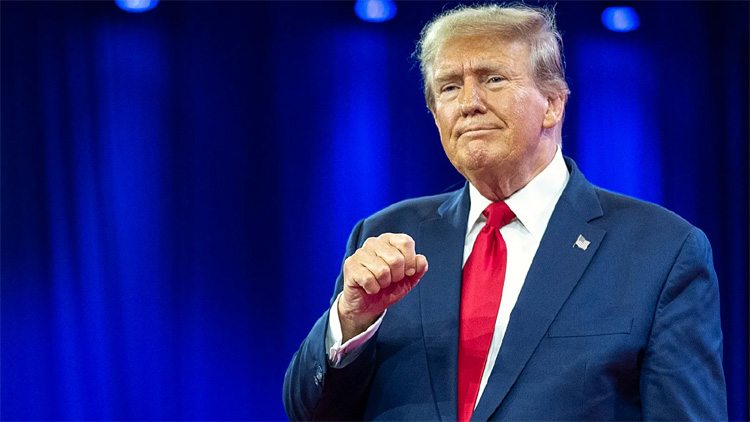US Supreme Court rules Trump entitled to some immunity in January 6 case, ending prospects of trial before elections
The Supreme Court on Monday decided that former US President Donald Trump may claim immunity from criminal prosecution for some of the actions he committed in the final days of his presidency.
The decision will probably further postpone a trial on the federal election subversion charges that are already pending against him.
In historic 6-3 ruling, the Supreme Court has reversed the outcomes of the 2020 election by rejecting a federal appeals court’s February finding that ruled Trump was not immune from prosecution for crimes he may have committed during his presidency.
“We conclude that under our constitutional structure of separated powers, the nature of presidential power requires that a former president have some immunity from criminal prosecution for official acts during his tenure in office,” stated Chief Justice John Roberts, CNN reported. “At least with respect to the president’s exercise of his core constitutional powers, this immunity must be absolute.”
“The President enjoys no immunity for his unofficial acts, and not everything the President does is official. The President is not above the law,” Roberts added on his Monday opinion.
While Roberts was joined by five conservative judges, three liberal judges expressed dissent.
Justice Sonia Sotomayor in a scathing dissent stated that the criminal immunity granted to Trump fundamentally alters the structure of the presidency. “It makes a mockery of the principle, foundational to our Constitution and system of government, that no man is above the law.”
In the courtroom, Sotomayor declared that the presidents’ protection provided by the court “is just as bad as it sounds, and it is baseless”.
The apex court heard arguments for over two months before rendering its final verdict of the term, which was much slower than in other significant high court cases involving the president, such as the Watergate tapes.
All you need to know about Trump indictments and Jan 6 case
In a New York court, Trump was found guilty of a felony, making history as the first former president to do so. He was found guilty of forging business documents to conceal the fact that he had paid hush money to former adult film star Stormy Daniels to buy her silence about their alleged affair ahead of the 2016 presidential campaign. Trump is facing three more indictments.
Smith is in charge of the two federal investigations into Trump that have resulted in criminal accusations. The Washington lawsuit centers on Trump’s purported attempts to rig the 2020 election following his defeat by Democratic candidate Joe Biden. The mishandling of secret documents is the central theme of the Florida case. The other case, which is in Georgia, likewise centers on what Trump did following his loss in 2020.
If Trump trial in Washington does not happen before White House elections and he is not granted a further four years in office, his trial would start soon after November.
However, if he prevails, he may name an attorney general to pursue the dismissal of both this case and others federal prosecution he is facing. If he returns to the White House, he could additionally attempt to pardon himself, but not in the case of hush money conviction.

